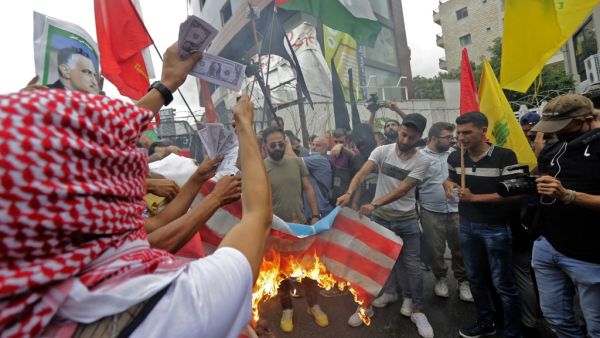Beleaguered Lebanese Prime Minister Hassan Diab on Saturday defied a barrage of criticism to declare that his government alone ruled Lebanon and it was determined to implement reforms to resolve the financial crisis.
Diab dismissed as “fake news” reports that he was on the verge of resignation, and said: “Lebanon will not be under anyone’s control as long as I am in power.”
The prime minister spoke after UN human rights chief Michelle Bachelet warned that Lebanon was enduring “the worst economic crisis in its history” and was “fast spiraling out of control.”
She urged Diab’s government to initiate urgent reforms and respond to “the people’s essential needs, such as food, electricity, health, and education.”
Diab also faced harsh criticism from the American University of Beirut (AUB), where he was vice president and a professor before becoming prime minister.
AUB president Fadlo Khuri said Diab’s government was the worst in Lebanon’s history in its understanding of higher education.
“I have not seen any shred of competence in this government since its formation six months ago,” said.
“The government owes the AUB $150 million in medical bills,” Khuri said, and he urged Diab to “at least discuss with us a payment timeline.”
Lebanon’s financial plight is illustrated by its currency, the lira, which has lost 80 percent of its value.
The black market dollar exchange rate on Saturday was 7,500, compared with the official rate of 1,507.
Bailout talks with the International Monetary Fund were suspended in a dispute over government debt, but Diab insisted on Saturday: “We have turned the page … and started discussing the basic reforms required and the program that the IMF and Lebanon will agree upon, which will restore confidence and open the door to many projects.”
This article has been adapted from its original source.








